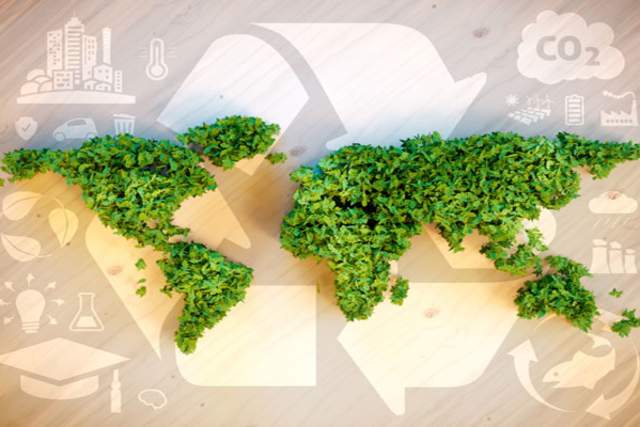With destinations around the world increasingly taking the lead on sustainability and regeneration, there’s plenty of inspiration to be gleaned from our peers in the Meetings, Incentives, Conferences, and Exhibitions (MICE) industry. Ahead of Earth Day, Simpleview’s David Peacock spoke with Peter Lee, Ph.D., Managing Director of Goyang Convention & Visitors Bureau, and Matthias Schultze, Managing Director of the German Convention Bureau, to explore how the successes within this space can be applied outside of the meetings industry to the tourism economy. Here are the key takeaways.
Sustainability: A Sector to Sector Challenge
The very first Earth Day — marked on a global scale every 22 April since 1970 — is viewed as a landmark moment in the birth of the contemporary environmental movement. What initially began as a social protest against pollution in post-war America is now a worldwide phenomenon. Today — with concerns over climate change and sustainability becoming ever more urgent — Earth Day has also become a time of collective, global action across all sectors and especially within the wider travel industry.
Yet — as David Peacock reminds us in his latest Future of Tourism podcast — it’s important that we don’t assume that sustainability is consistently understood, considered, and woven into any kind of long-term strategy across each and every sector. For example, when considering why sustainability has long been given such a strong consideration in the MICE space and yet not so much so in the travel and tourism sector, both Lee and Schultze are open and honest in acknowledging the lack of clarity surrounding the issue. For Schultze — who reminds us that sustainability efforts were brought into the MICE space as a kind of peer-learning experience over a decade ago — there is no clear-cut answer as to the lack of replication of this ethos in the travel industry. Lee posits that, as a concept, sustainability thrives in the MICE space due to the intimate, closed nature of the sector as a whole. On the flipside, Lee believes that it’s harder to implement sustainability in the greater travel industry because of its very different stakeholders, its open market structure and size, and the fact that — by their very nature — leisure travellers are transient.
Lessons to Learn
This Earth Day, we are all being called upon to take accountability for the future and fittingly, the theme for 2023’s event is #InvestInOurPlanet. This global call to action is appropriate to the issues explored by Peacock, Schultze, and Lee during the course of the podcast — especially when considering how the wider travel sector can learn from the MICE industry’s inclusion of sustainability as an ethos that actively informs how the sector operates. Specifically, there is a clear consensus that the wider travel industry should be making a cohesive effort to bring people — be they travellers or professionals within the sector — together to talk about the challenges faced while trying to actively implement sustainability into the greater travel industry. Speaking of his experience within the MICE sector, Schultze believes that the inspiration and tangible solutions achieved by delegates at a live, in-person event is something that — with careful planning — could be actively captured by destinations as inbound travellers filter through any given space.
The other key point in successfully transplanting the concept of sustainability from the MICE sector to the travel industry revolves around the greater sharing of knowledge and communication. On that point, as Schultze explains, it’s necessary for DMOs to share their findings, their research, and their thoughts with their local communities. The idea, he clarifies, is for DMOs and destinations to try and create a link not just to travellers, but to the communities in which they exist, thus thoughtfully and purposefully engaging with the widest possible pool of stakeholders.
From Earth Day to everyday, sustainability is the issue of our time. By turning to other sectors for inspiration, the travel and tourism industry can play a key role in solving this collective issue.

